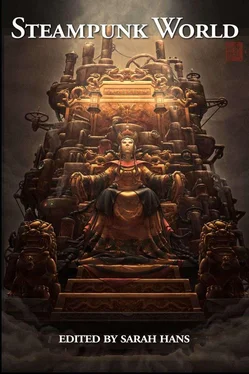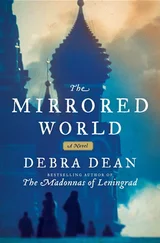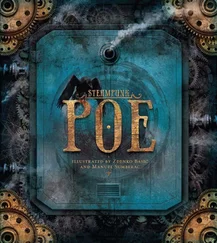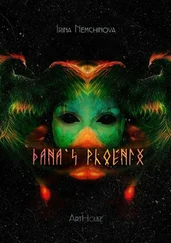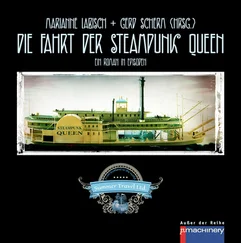Tariq shook his head. “And now that the Prussians are in season?”
“I dress accordingly.”
One of the Prussians, a white-haired man with a barrel upper-body and mustache that curtained over his lips, barked something in Prussian. Farouk turned a pleasant smile on the man, replying in a conciliatory tone.
Raakin stepped in and grabbed Tariq by the bicep. He reached into the satchel strung over Tariq’s shoulder and pulled out the book, showing it to the men. The thin Prussian took it and the assembled studied the book, flipping through its pages.
“I will not help you,” Tariq said.
Raakin’s grip tightened. “Shut up,” he said, softly. “Before you rob me of all excuses to keep you alive.”
Tariq glanced at Raakin, surprised, but the assassin didn’t bother glancing back. After a few minutes of examining the book, the barrel-chested Prussian said something to Tariq, something that sounded like a demand. It was Raakin who replied in Prussian. The man nodded and returned the book to the assassin.
“Raakin,” Farouk said. “Encourage him.”
“Why are you helping me?” Tariq said over the drone of the F-11. The reek of oil was stifling.
Raakin pulled him through the darkness, past the soldiers who couldn’t bother looking up. “Am I?”
He brought Tariq to a bedu tent on the edge of the aerostat’s skirt and pushed him through gently. The women in the tent stared back with hardened nomad’s eyes that were at once black and unblinking. It was the only thing Tariq could see of them in the narrow slit of their heavy burkas. Medallions of bronze and copper hung from their black cloth, while silver chains dangled from the medallions and chimed softly as they shifted. They sat on faded carpets, a pungent dung fire bringing tears to Tariq’s eyes. Among them sat children, but no men. They watched, as though expecting him.
Raakin nodded to the empty carpet on the ground and shoved the book into Tariq’s chest. “Hurry,” he said. “Before the desert swallows the city again.” And with that, he left.
Tariq stared at the women, and they stared back, waiting. They looked at the book and they looked at him. Did they want this? Taking the bait, he opened the book and several women inhaled and held their breaths. They knew what it was, Tariq realized in a way that sent tingles through his fingertips.
Of course… The bedu women were the ones who shared tales, who safeguarded the magic of the tribe, who dared speak of dark things when night came. Only one woman alone held Tariq’s gaze, a pair of soupy brown eyes set in a cradle of wrinkles.
“ Kan ,” she said in Arabic. There was…. She exposed her forearms, the brown skin leathery and thin with age, the henna tattoo red and powdery. On each forearm was a wing, the wings of birds, the wings of Manāt, the female angel forgotten by Islam. “There was,” she insisted.
The words came flooding back, his father smiling kindly as young Tariq asked, “What happened to Manāt, father?”
A Goddess does not die so easily, not when she is adored for thousands of years. Just as there are still Christian and Hebrew bedu who roam Sheba’s deserts, so too is it said, there are tribes who remember the older ways… before the words of Abraham and Jesus and Muhammad.
The old woman motioned to Tariq, or the book. He wasn’t sure it wasn’t both, and he opened the journal of Abd-Es-Samad to the picture of the temple to indulge a curiosity that had gnawed at him since he first spoke with Farouk.
“How do we enter the Temple of Manāt?” Farouk had asked, and yet in the journal, the door was already open. Did Abd-Es-Samad seal the doors after he’d uncovered it? Is that why the remaining pages had been ripped out?
He needed to see for himself.
“Manāt,” he said simply as he stood. He did not expect them to stop him, and neither was Raakin standing guard outside….
The storm, a dervish of pinprick stings, swirled around Tariq and cajoled him through the half-buried streets of the lost city. He should not have been here; he was fellahin to the desert and it knew more ways to kill him than he knew to survive, but he shouldered over drifts and exposed layers of glazed macadam with their evenly polished stone.
The tan and bronze buildings towered over him, some block-like and Roman in appearance, some thin and fluted like the minarets of places he called home. Constantinople was a city adapting to the invention of Steamkraft, but Ubar had been built from a foundation of it. The roots of the towers and the marble obelisks were sheathed in a metallic base etched with intricate angled patterns. Why did it feel to Tariq that those structures could turn in their sockets like a shaft inside a gear? Statues of metal angels, men and women, adorned the tiered and terraced fountains that had run dry, and their copper feathers creaked and swung on articulated joints. What could only be lampposts lined the wide avenue, their thin polished wood stems branching into a sprout of glass bulbs. Those bulbs that hadn’t been smashed and cracked glowed with wane strength, a firefly prick of light at the center of some liquid.
In the distance, the silhouette of giant metallic statues in shield-like plate filtered in and out of view from the storm. They measured the size of buildings and poked out at odd angles from the dunes; an arm here, a bent knee there, one statue on its knees crawling forward, as though the statues were moving when the desert claimed the city.
Tariq knew the answer. Ubar was a madcap’s city, a city built by dreamers and men and women of unbridled faith.
From somewhere behind him he thought he heard shouting, perhaps the wail of a cranked siren. Then a piercing bellow of the aerostat’s horn followed, the echo absorbed by the pitched storm. They knew he was missing. They’d started searching for him.
Tariq plowed straight and true to the heart of the city, to the Temple of Manāt itself according to the book. His hips and thighs ached to numb fatigue from the heavy sand. His shoulders throbbed with effort as he hugged the book tightly to his chest. Ahead, ghostly white lights appeared, first as wisps, then as burning torches in their glass housing. St. Elmo lanterns on poles lay planted outside the temple, some askance, some toppled. Up the stairs, winged statues stood vigil, ten on either side of a great metal door measuring a story high. As Tariq approached, he saw no handle, no seam to the door, just a mosaic of metal shards in the form of a… phoenix? No, the face was feminine. It was the Persian Simorgh .
The temple’s door and its solid frame were battered and scored from cannon fire but intact. Picks and shovels poked out from the drifts against the wall, and a tent between two statues flapped on its last two pegs, exposing its wood crates.
Tariq ran up the exposed granite steps, grateful for the solid ground beneath his feet again. Along the wall, between the statues, was a frieze in bas-relief of birds and flowers, each made from a different metal, but he had little time to admire the artistry. A glance backwards showed the spotlights from the F-11’s carbon arc lamps sweeping the desert, likely ahead of the soldiers. He had little time to lose.
Putting his back to the whipping winds, Tariq cracked open the book and glanced at the picture. It was hard to see, but he needed only a nudge to remember what his father had engrained in him: The door open, the statues holding two birds apiece in their outstretched hands. Tariq looked up at the statues, then down at the picture. The ten-foot high statues of the angels held no birds. Their arms were wings that swept forward into a cupping pose.
A mistake? Tariq wondered. No, a clue from Abd-Es-Samad.
Читать дальше
